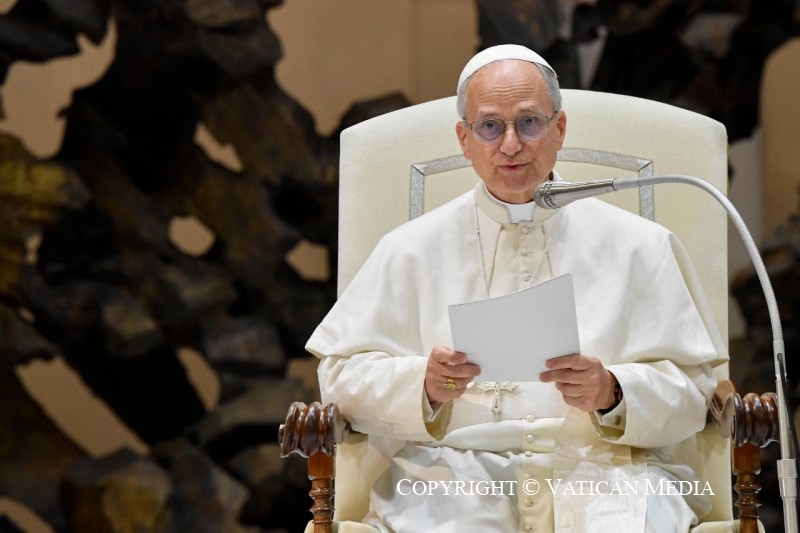Freedom and Otherness: Chinese Catholics and the American pope
A source in mainland China spoke to AsiaNews about the election of a pontiff born in a country that, according to state propaganda, is its archfoe against whom to flaunt China’s superiority. Yet, the open gaze of Chinese Catholics towards Leo XIV shows, once again, that believing is freedom, and that a Chinese does not become Catholic if they have not first accepted, internalised, and then freed themselves from the “international tensions” that this entails.
Beijing (AsiaNews) – How did Chinese Catholics experience Pope Leo XIV’s election? A few days ago, we reported on Beijing’s low-key reaction (the regularly updated Church news section of the website of the Diocese of Shanghai is still stuck at the death of Pope Francis). This is a very sensitive matter in a country where the official propaganda views the new pope’s birthplace as China’s main rival. A source in China shares with AsiaNews their reactions to the pontiff’s election, speaking about the great inner freedom that Chinese Catholics are showing at present, despite the pressures to which they are subjected.
Chinese Catholics too were surprised and overjoyed by the election of the new pope. We were able to follow the live broadcast late at night through a dedicated app and post the first timid comments online, centred mainly on the chosen name and the Chinese transliteration. Then it was back to the usual silence.
It is useless to hide the fact that “geopolitical” ideas lurked in the first reactions (at least in mine), thinking about what the pope's nationality could mean for China’s future, but in this area, the Chinese Church is a master of freedom.
No one made any oblique comment about this; a priest told me "I didn't know that there had never been an American pope,” while a young woman said, “I couldn't tell you where the others came from.”
Of course, the "geopolitical" question is there and is very clear to everyone, but being Christian in China is an experience that is already fraught with nationalist tensions.
A Chinese does not become Catholic if they have not first accepted, internalised, and then freed themselves from the “international tensions” that this entails, tensions that are not intellectual but involves everyone's daily life, whether the faith is lived publicly or in secret.
In fact, the propaganda would like to pass on the concept that being Catholic means not being fully Chinese, but a “sellout to Westerners”.
Christians, on the other hand, are committed to reconciling being Chinese with being Christian, without falling into nationalistic sinicisation. This is not a trivial thing since pressures are strong; if the faith is not anchored to a truly universal conscience, it gets crushed.
One can be baptised only if one first agrees to deal with all this throughout one’s life – children are educated in the faith to be aware of the additional pressure that this will entail for them, and only if they are fully convinced that they are living stones of a greater universality. The latter allows one’s roots to flourish because, while it loves one’s culture and for it gives life, it is also accused for it.
Thus, once again, for the Chinese Church, believing is freedom, bringing out the evangelical paradox that those who are in chains are sometimes freer than those who are not.
On the one hand, mainstream propaganda in China views America as “enemy number one”, highlighting that China’s superiority must always be proven and flaunted. This is a successful and effective communication model.
On the other, a much more open, albeit underground attitude sees America as the other, the one that elicits curiosity. Americans are not the enemy but the exotic to be discovered, the other than me that I would like to know.
I remember the excitement for TikTok refugees a few months ago. “Finally, Chinese and Americans can communicate directly with each other," or "I can't wait to know how a college kid lives in America", or “Now let it be known that governments have problems with each other, not people.”
Everyone needs otherness to live, and the desire for diversity cannot be stifled for long – sooner or later it resurfaces. Symbolically America preserves this wish.
Among such extremes, it is possible to read the way Leo XIV’s election was received, and with him the Church, as something that represents a space of freedom, albeit one with a hefty price, which, in the name of unity and otherness, is a sign of reconciliation.







.png)










